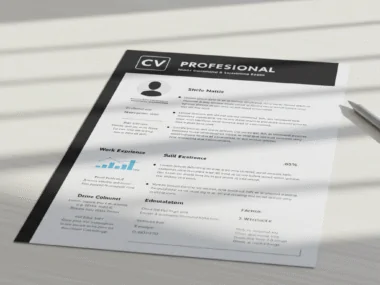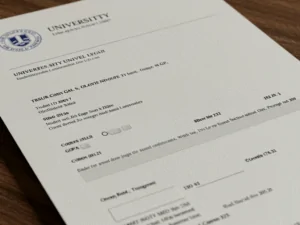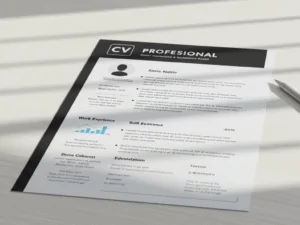Dreaming of a rewarding nursing career in a country with top-notch healthcare and a welcoming vibe? Canada is calling your name in 2025, offering incredible opportunities for nurses, especially internationally educated ones like those from Nigeria. With a high demand for registered nurses (RNs), licensed practical nurses (LPNs), and nurse practitioners, Canada’s healthcare system is booming, and you can be part of it.
This guide walks you through how to apply for nursing jobs in Canada. From credential assessments to job applications, we’ll cover every step, including tips for Nigerians, costs, and links to apply. Let’s get started on your journey to a fulfilling nursing career in Canada!
Why Choose Nursing Jobs in Canada?
Canada’s healthcare system is one of the best in the world, and nurses are in high demand due to an aging population and staffing shortages. In 2022, Canada welcomed over 1 million immigrants, many in healthcare, to boost its workforce, per government data.
Nursing jobs offer competitive salaries (CAD 60,000–90,000/year for RNs), job security, flexible schedules, and benefits like health coverage and paid vacation. Plus, Canada’s safe environment, low crime rates, and diverse culture make it a great place to live and work. Whether you’re a fresh graduate or an experienced nurse, Canada has opportunities in hospitals, clinics, nursing homes, and remote communities.
Types of Nursing Jobs in Canada
Before applying, understand the main nursing roles:
- Registered Nurse (RN): Requires a bachelor’s degree or equivalent, passing the NCLEX-RN exam, and registration with a provincial regulatory body. RNs provide direct patient care, manage cases, and specialize in areas like emergency or critical care.
- Licensed Practical Nurse (LPN)/Registered Practical Nurse (RPN): Requires a diploma or certificate, passing the CPNRE exam, and provincial registration. LPNs/RPNs provide basic care under RN supervision.
- Nurse Practitioner (NP): Requires a master’s degree, advanced training, and registration. NPs diagnose and treat patients independently.
- Psychiatric Nurse: Focuses on mental health, requiring specific training and registration in provinces like British Columbia or Alberta.
Note: Each province has unique requirements, so research your target region (e.g., Ontario, British Columbia, Quebec).
Step-by-Step Guide to Apply for Nursing Jobs in Canada
Applying for nursing jobs in Canada as an internationally educated nurse (IEN) involves several steps, from credential assessment to job search. Here’s a detailed roadmap for 2025.
Step 1: Assess Your Eligibility
Before applying, confirm you meet Canada’s nursing requirements:
- Education: A nursing diploma or bachelor’s degree equivalent to Canadian standards (4-year degree for RNs, 1–2 years for LPNs).
- Work Experience: At least 1 year of nursing practice in the last 3–5 years, depending on the province.
- Language Proficiency: Prove English or French skills via tests like IELTS (overall 7.0, no band below 6.5) or CELPIP for English, or TEF for French. Some provinces waive IELTS for nurses from English-speaking countries, but Nigeria typically requires it.
- Good Character: Provide references and disclose any health or legal issues.
- Authorization to Work: You’ll need a work permit or permanent residency (more on this later).
Tip: Use the National Nursing Assessment Service (NNAS) eligibility checker to confirm your qualifications.
Step 2: Get Your Credentials Assessed by NNAS
The National Nursing Assessment Service (NNAS) is the first step for IENs seeking licensure in Canada (except Quebec and the Territories). Here’s how to proceed:
- Create an NNAS Account: Visit nnas.ca, click “Apply/Login,” and register. Cost: USD 765 (~₦1.2 million at ₦1,600/USD).
- Submit Documents:
- Notarized copies of your passport and birth certificate.
- Nursing education transcripts and diploma, sent directly by your school.
- Nursing registration/license from your home country.
- Employment records for the past 5 years, verified by employers.
- Language test results (IELTS, CELPIP, or TEF).
- Wait for the Advisory Report: NNAS assesses your credentials against Canadian standards, issuing a report in 5–10 weeks (expedited service available as of April 2025).
- Choose a Province: Select a provincial regulatory body (e.g., College of Nurses of Ontario) to send your report to.
Links to Apply:
Cost Breakdown:
- NNAS fee: ₦1.2 million (USD 765).
- Notary services: ₦50,000–₦100,000.
- IELTS: ₦250,000–₦300,000.
- Document translation (if needed): ₦20,000–₦50,000.
Tip: Start this process from Nigeria to avoid delays, as obtaining documents is easier at home.
Step 3: Register with a Provincial Regulatory Body
After receiving your NNAS Advisory Report, apply to the nursing regulatory body in your chosen province. Each assesses your competency and may require additional steps like exams or bridging courses.
Provincial Regulatory Bodies
- Ontario: College of Nurses of Ontario (CNO) – Requires NCLEX-RN for RNs, CPNRE for RPNs, and jurisprudence exams.
- British Columbia: BC College of Nurses and Midwives (BCCNM) – Offers support via Health Match BC.
- Alberta: College of Registered Nurses of Alberta (CRNA)
- Quebec: Ordre des infirmières et infirmiers du Québec (OIIQ) – Requires French proficiency.
- Others: See Canadian Nurses Association for a full list.
Process
- Submit NNAS Report: Pay the provincial assessment fee (e.g., CNO: CAD 500, ~₦800,000).
- Complete Additional Requirements:
- NCLEX-RN Exam: For RNs, costs CAD 360 (~₦576,000). Study with resources like UWorld.
- CPNRE Exam: For LPNs/RPNs, costs CAD 250 (~₦400,000).
- Bridging Courses: If your education doesn’t match Canadian standards, take a 6–12-month course (e.g., at Western Community College). Cost: CAD 5,000–15,000 (~₦8–24 million).
- Jurisprudence Exam: Tests knowledge of provincial nursing laws (e.g., CNO’s exam costs CAD 40, ~₦64,000).
- Get Licensed: Once approved, pay the registration fee (e.g., CNO: CAD 350/year, ~₦560,000).
Links to Apply:
Tip: Ontario and British Columbia have high demand and streamlined processes for IENs.
Step 4: Secure a Work Permit or Permanent Residency
To work legally, you need authorization. Options include:
- Work Permit: Requires a job offer from a Canadian employer. Apply via Immigration, Refugees and Citizenship Canada (IRCC). Cost: CAD 155 (~₦248,000).
- Permanent Residency (PR): Apply through:
- Express Entry (Federal Skilled Worker Program): Requires 1 year of skilled work experience, CLB 7 in English/French, and a high Comprehensive Ranking System (CRS) score. Processing time: 6–12 months.
- Provincial Nominee Program (PNP): Provinces like British Columbia (BC PNP) nominate nurses for PR. Health Match BC assists with BC PNP applications.
- Quebec Skilled Worker Program (QSW): For Quebec, requires French proficiency.
- Atlantic Immigration Program: Targets nurses for Atlantic provinces (e.g., Nova Scotia).
Process:
- Create an Express Entry Profile: Visit IRCC’s portal. Free to start.
- Submit Documents: NNAS report, language test results, job offer (if any).
- Await Invitation to Apply (ITA): High CRS scores (400+) improve chances.
- Apply for PR: Pay CAD 1,365 (~₦2.2 million) per person.
Links to Apply:
Tip: A job offer boosts your CRS score by 50–200 points. Start job hunting early.
Step 5: Prepare Your Job Application
Once licensed (or while awaiting licensure), start applying for jobs. Here’s how:
- Craft a Canadian-Style Resume:
- Include a “Summary of Qualifications” highlighting skills (e.g., patient care, teamwork).
- Use bullet points for education, experience, and certifications.
- Add keywords like “registered nurse,” “NCLEX-RN,” and “patient-centered care.”
- Example: RBC Resume Template.
- Write a Cover Letter:
- Tailor it to each job, emphasizing your passion for nursing and fit for the role.
- Keep it concise (1 page) and error-free.
- Network:
- Join LinkedIn and Indeed to connect with recruiters like Health Match BC’s Shannon.
- Attend virtual job fairs or webinars hosted by Canadian Nurses Association.
- Contact settlement agencies for job search support (free for newcomers).
- Apply Online:
- Use job boards like Indeed Canada (3,925 nurse jobs listed in 2025).
- Check hospital websites (e.g., Provincial Health Services Authority).
- Apply for rural or First Nations community roles via Indigenous Services Canada for bonuses (up to CAD 15,000).
- Prepare for Interviews:
- Use the STAR method (Situation, Task, Action, Result) to answer questions.
- Research the employer’s values (e.g., patient safety, diversity).
- Practice with cue cards for common questions like “Why do you want to work here?”
Links to Apply:
Tip: Rural areas like British Columbia’s Interior or First Nations communities offer high demand and bonuses.
Step 6: Relocate and Start Working
Once hired, prepare for your move:
- Visa Processing: Await work permit or PR approval (6–12 months).
- Travel Arrangements: Book flights (₦1–2 million round-trip from Nigeria).
- Accommodation: Rent in cities like Toronto costs CAD 1,500–2,000/month (~₦2.4–3.2 million). Rural areas are cheaper.
- Settle In: Join local nursing associations or Nigerian diaspora groups for support.
- Start Work: Expect 36–40-hour weeks, with salaries of CAD 37.64–40.92/hour for LPNs and CAD 81,513–92,653/year for RNs in remote areas.
Costs Breakdown (Nigerian Perspective)
Here’s a sample budget for the process (2025 estimates, ₦1,600/CAD):
- NNAS Assessment: ₦1.2 million (USD 765).
- IELTS Exam: ₦1,200,000 (4 attempts if needed).
- Provincial Registration: ₦800,000–1.2 million (e.g., CNO CAD 500).
- NCLEX-RN/CPNRE: ₦400,000–576,000.
- Bridging Course: ₦8–24 million (if required).
- Visa Fees: ₦248,000 (work permit) or ₦2.2 million (PR).
- Job Application Prep: ₦100,000 (resume, notary, transport).
- Travel: ₦1–2 million (flights).
- Total: ₦13–32 million, depending on bridging needs.
Tip: Save by applying directly to provinces with no NNAS requirement (e.g., Quebec) or secure a job offer to offset costs via PNP.
Challenges and Solutions
- High Costs: Use free resources like PrepareforCanada for job search tips. Apply for scholarships or loans for bridging courses.
- Visa Delays: Apply 6–12 months early via IRCC. Track status online.
- Language Tests: Prepare for IELTS with free apps like Duolingo IELTS or coaching via Y-Axis.
- Credential Gaps: Take bridging courses at colleges like Western Community College.
- Job Competition: Apply to rural or underserved areas for faster employment.
Trends in 2025
- Increased Demand: Canada’s aging population drives nurse hiring, especially in rural areas.
- Express Entry Draws: Target healthcare workers, with high CRS scores (400+) favored.
- No IELTS for Some: Pre-approved programs in Quebec or bridging courses may waive IELTS.
- Digital Tools: Job boards like Indeed.ca and virtual fairs streamline applications.
- Diversity Focus: Employers value diverse hires, per Canada’s Best Diversity Employers.
Tips for Nigerians
- Start Early: Begin NNAS 1–2 years before moving to avoid delays.
- Combine Exams: Use WAEC/NECO for education verification if needed, but confirm with NNAS.
- Network: Follow HealthCareersCanada on X for job updates.
- Budget Wisely: Save ₦15–20 million for the process, excluding living costs.
- Choose Strategic Locations: Ontario and British Columbia offer the most jobs and IEN support.
Sample Timeline
- 2025 (Now): Register with NNAS, take IELTS, research provinces.
- Mid-2025: Receive NNAS report, apply to regulatory body, take NCLEX-RN.
- Late 2025: Get licensed, apply for jobs, submit PR application.
- Early 2026: Relocate, start working.
Frequently Asked Questions (FAQs)
- Do I need IELTS for nursing jobs in Canada?
Usually, yes, but some provinces waive it for bridging programs or English-taught education. Aim for IELTS 7.0 overall. - Can I apply without a job offer?
Yes, via Express Entry, but a job offer boosts your CRS score. - How long does the process take?
1–2 years, including NNAS, licensure, and visa processing. - Which province is best for nurses?
Ontario and British Columbia have high demand and support for IENs. Quebec requires French. - What’s the salary for nurses in Canada?
RNs earn CAD 60,000–90,000/year; LPNs earn CAD 37–41/hour.
Final Thoughts
Applying for nursing jobs in Canada in 2025 is a journey worth taking, with rewarding careers and a high quality of life awaiting you. From getting your credentials assessed by NNAS to securing a job via Indeed or Health Match BC, each step brings you closer to your dream. For Nigerian nurses, the process may seem daunting, but with early planning, budgeting (₦13–32 million), and persistence, you can succeed. Start today, create your NNAS account, prepare for IELTS, and explore job boards. Canada’s healthcare system needs your skills, and your future as a nurse is just a few clicks away. Ready to make the move?







